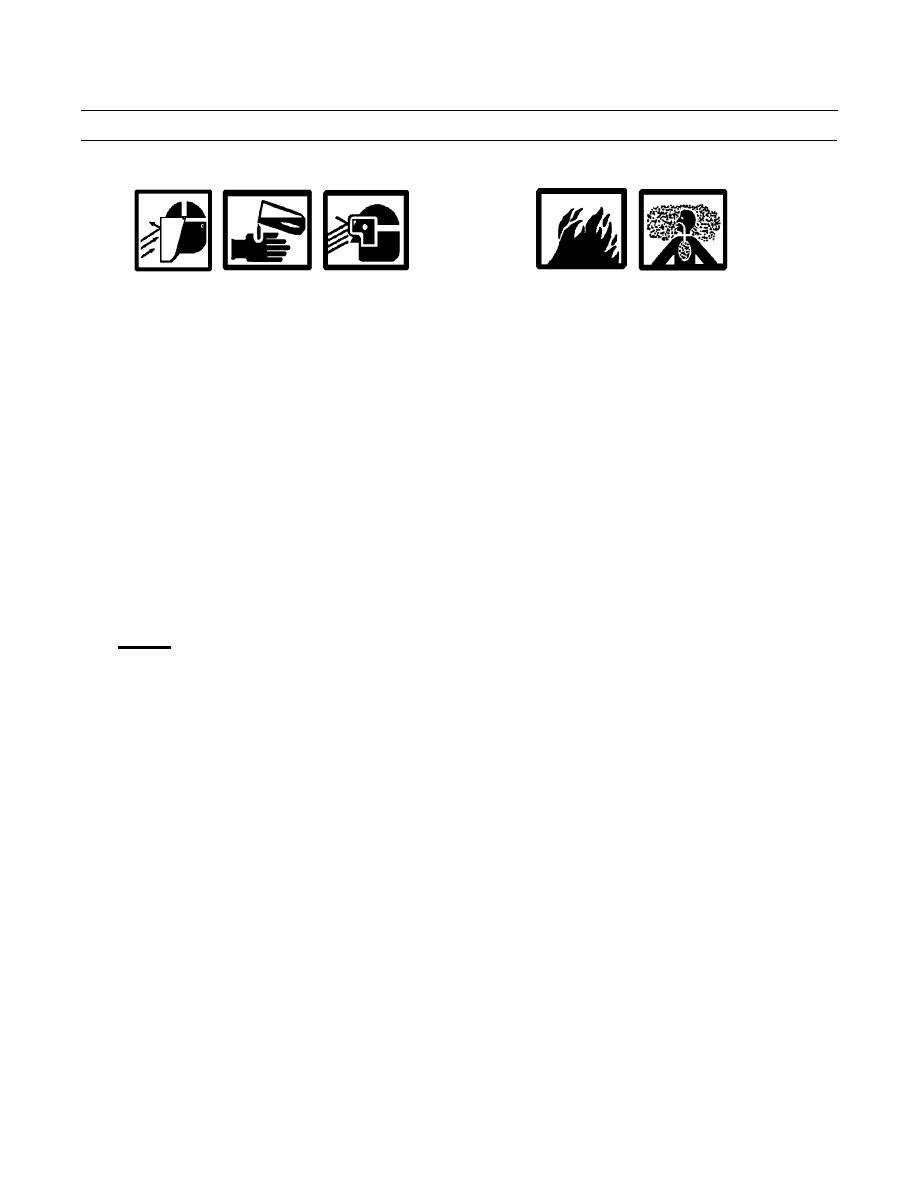 |
|||
|
|
|||
|
|
|||
| ||||||||||
|
|
 TM 5-2410-233-23
GENERAL MAINTENANCE INSTRUCTIONS - CONTINUED
0176 00
CLEANING INSTRUCTIONS
WARNING
Solvent cleaning compound MIL-PRF-680 Type III is an environmentally compliant and low
toxic material. However, It may be irritating to the eyes and skin. Use protective gloves and
goggles. Use in well-ventilated areas. Keep away from open flames and other sources of igni-
tion.
Improper cleaning methods and use of unauthorized cleaning solvents may injure personnel
and damage equipment. Refer to TM 9-247, materials used for cleaning, preserving, abrading,
and cementing ordnance materiels and related materiels including chemicals, for correct
information.
Fire extinguishers should be placed nearby when using solvent cleaning compound.
Cloths or rags saturated with solvent cleaning compound must be disposed of IAW authorized
facilities' procedures.
Eye shields must be worn when cleaning with a wire brush. Flying rust and metal particles
may cause injury.
Particles blown by compressed air are hazardous. DO NOT exceed 15 psi (103 kPa) nozzle
pressure when drying parts with compressed air. Use a maximum of 30 psi (207 kPa) when
cleaning components. DO NOT direct compressed air against human skin. Failure to follow
this warning may result in injury or death. Make sure air stream is directed away from user
and other personnel in the area. To prevent injury, user must wear protective goggles or face
shield.
1.
General.
a.
Cleaning instructions are the same for the majority of parts and components of the D7F Tractor.
b.
The importance of cleaning must be thoroughly understood by maintenance personnel. Great care and effort are
required in cleaning. Dirt and foreign material are a constant threat to satisfactory maintenance. The following
should apply to all cleaning, inspection, repair and assembly operations.
(1)
Clean all parts before inspection, after repair and before assembly.
(2)
To prevent contamination, hands should be kept free of accumulation of grease, which can collect dust, dirt
or grit.
(3)
After cleaning, all parts should be covered or wrapped to protect them from dust and dirt. Parts that are
subject to rust should be lightly oiled.
0176 00-3
|
|
Privacy Statement - Press Release - Copyright Information. - Contact Us |